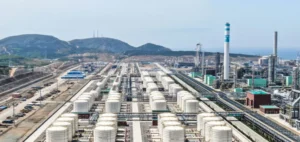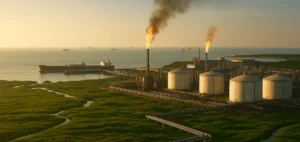Since the start of its oil production in 2011, Niger has pursued various projects to maximize the value of its hydrocarbon resources. Recently, an agreement was signed with Canadian company Zimar Inc for the construction of a modular refinery in the Dosso region. This project aligns with the national strategy to develop oil processing infrastructure. Once completed, the refinery is projected to have a capacity of 100,000 barrels per day, a significant volume for a market where refining capacity remains limited.
The agreement also includes operational management of the infrastructure by Zimar Inc in the early years, with an eventual transfer to Nigerien authorities. This approach is intended to support the development of local expertise in the management and maintenance of oil infrastructure, a strategic component to ensure the long-term viability of the project.
Projected Capacity and Economic Impact
Once operational, the refinery could reduce Niger’s current reliance on imported refined products while enabling exports to neighboring countries. For instance, negotiations have been initiated to supply Mali, a neighboring country, with additional diesel. According to initial projections, Niger’s diesel exports could reach up to 150 million liters per year, a substantial increase compared to current volumes.
Modular Infrastructure for Accelerated Construction
The modular design of the Dosso refinery allows for faster construction and reduced initial costs. This approach has advantages in a context where regional demand for refined products is rising. However, the modularity of the infrastructure could also limit future capacity expansion if demand exceeds current forecasts, a constraint that Niger may offset through additional partnerships.
Geopolitical and Commercial Implications for Niger
With this project, Niger seeks to strengthen its position in the West African energy market by positioning itself as a supplier of oil products. In addition to potential economic stabilization, this refinery could attract new investors to Niger’s oil sector. Furthermore, the development of local refining infrastructure would reduce imports of finished products, balancing the country’s trade and increasing its regional competitiveness.
Skills Development and Training Support
In parallel with the refinery’s construction, Zimar Inc plans to collaborate with local institutions to train a skilled workforce. The Petroleum Institute at the University of Zinder is among the potential partners for training technicians and engineers. This training effort aims to increase Niger’s autonomy in managing its energy infrastructure, a strategic aspect in such a competitive and technical sector.





















